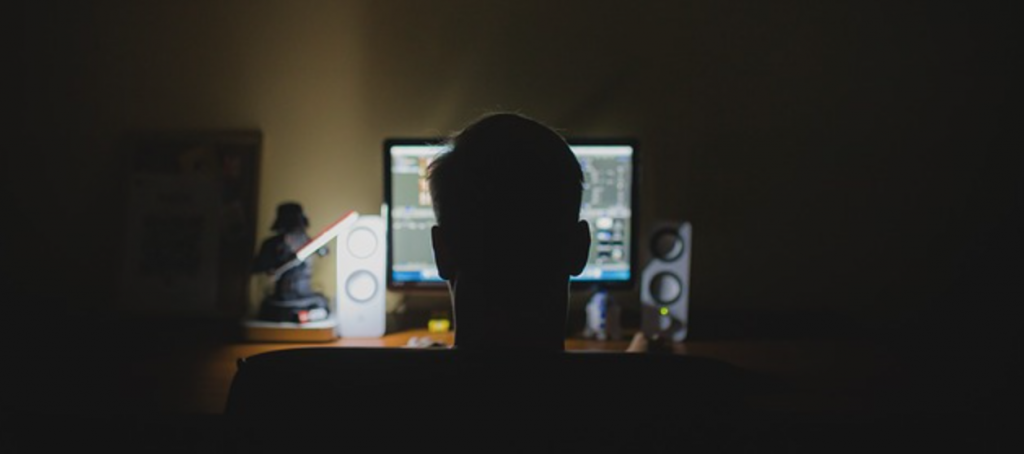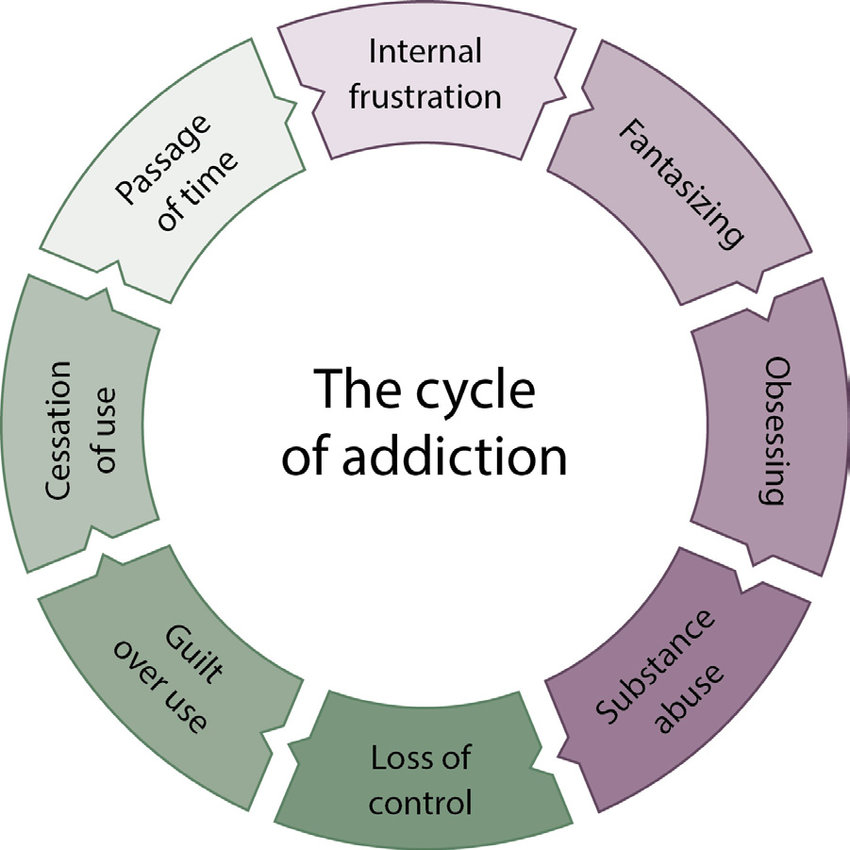Have you ever found yourself left ‘on seen’?
Hurts don’t it?
…Especially when it’s committed by your crush.

Meme created by CorporalCatskin
Being ‘seenzoned’ is a common occurrence in our day and age. Something that our parents never had to deal with (especially when it came to dating). In fact, with the explosion of social media and smartphones, modern dating is vastly different in comparison to what it was as recent as 12-15 years ago.
Let’s look at the Google trend for the word ‘seenzoned’ below.
(100 representing peak popularity).
Does being seen zoned take you on a rollercoaster of emotions?
Have you felt anything from sadness, rejection, fear, frustration to anxiety or even panic?
Well you’ve come to the right place my friend…
Oh the temptation…
In the last decade (or so) humans have (increasingly) had a world of information at their fingertips. Facebook, Instagram, Snapchat and Twitter (to name a few social media platforms) all contribute to this rising anxiety. Not all accounts are private and it is all too tempting to check up on people….you know, for some reassurance?
Similar to how tech companies construct targeted ads from our browsing history and session data (cookies), we too can make deductions about our crush’s:
- Whereabouts
- Current actions
- Current emotional state
- Social interactions with other people
- Consciousness (asleep/awake)
You might find yourself becoming a private eye without even intending to do so. Worryingly, there is a possibility you might even become addicted to it.
You may have called this act ‘Facebook stalking’, but lo and behold, there’s a fancier term in the literature. It’s called ‘Electronic intrusion’, or EI for short.
Reed, Tolman and Sayfer (2015, p.432) define electronic intrusion as “the use of social media to intrude into the privacy of a dating partner and monitor their whereabouts and activities”.
But sometimes information can slap you in the face unexpectedly, without you even deliberately seeking it out. Ouch.
I’ve created this little table to showcase the passive and not so passive ways in which you can intrude.
| Could ‘hit you in the face’ unexpectedly (Passive) | Has to be sought out manually (Active) | Both |
| Facebook post or profile/cover photo update (on your Newsfeed). Birthday notification Messenger active status | Dated Facebook post. Messenger active status | Yes |
New tweet notification Tweet on your timeline | Dated tweet on Twitter profile. | Yes |
| Snapchat story that auto plays after viewing another friend’s story. | Snapchat score Snapchat story Snapmap location | Yes |
| Instagram post (on your newsfeed). Instagram story. | Dated Instagram post. | Yes |
| Spotify activity bar. | Spotify activity bar. | Yes |
Interesting how both platforms simultaneously allow for self control and….temptation.
The pain is real…
As a generation that’s trying to find ‘the one’, we’re quite taunted by this information. It’s not just people in the development stage of a romantic relationship that are hurting. You might have a painful falling out with friends, only to be constantly reminded of your loss every time you open Facebook. Similarly, if you’re in the post breakup stage it may only take a photo of your ex on a mutual friend’s account to undo the stitches of your broken heart.

Sure you can block or unfriend, but you probably won’t due to fear of backlash…or just plain curiosity. So you end up unfollowing them…only to find yourself ‘checking up’ on them in the wee hours of the night.
If you do have the strength to unfriend/block, you might find yourself asking (or tempted to ask) friends to commit electronic intrusion for you.
Mommie dearest?

In a study conducted at the University of Michigan in 2015, researchers Reed, Tolman and Sayfer (p.431) found that “attachment style influences intrusive electronic dating behaviors”.
In a nutshell, if you’ve been subject to insecure attachments (a relationship grounded in fear, rather than love) in your childhood, then you’re more likely to commit electronic intrusion (Reed et al. 2015).
The study also found that “social media may increase risk for anxiously attached college students to engage in… [electronic intrusion] for anxiety relief” (Reed et al. 2015, p.431).
The ironic part being that EI does not bring any relief. In fact, it can worsen your condition.
But we keep doing it, don’t we? Why? Welp, because like any addiction, it’s a vicious cycle. Here’s a little diagram to illustrate my point.
Hint: replace ‘substance abuse’ with ‘electronic intrusion’.

Great Scott!

Let me indulge you for a moment. Let’s go back in time to the 1980s. There were no smartphones or social media websites – heck, the internet only existed in small pockets on university campuses.
If you wanted to electronically intrude, you had to do some super creepy things to get information.
Things like:
- Driving past a person’s house late at night to see if they were home.
- Driving past a person’s workplace during the day to see if they were at work
- Calling a person’s house and then proceeding not to say anything when they answered
- Asking your friends to pass on information about said person
These physical acts of privacy intrusion (you had to leave the couch to do it) aren’t socially acceptable for the average person.
But, now we live in a day and age where you don’t even need to leave the house or directly contact a person to glean information about them. This makes your acts less creepy, more normalised, accessible, and most importantly, harder to resist.
Self control, where did you go?

We are living in the age of instant gratification. Self control, I would argue, is on the decline. Admittedly, I still haven’t mastered self control/self discipline, but I’d almost guarantee it was easier in our parent’s social media free day and age.
Whilst social media can be used for a number of positive endeavours (e.g activism, crowdfunding, friendships, strengthening international relations, education), without clear personal goals/purpose/self control, it can be time sucking. (Yep, procrastination is a thing and you’re probably doing it right now).
As outlined in my table, you can act passively and still get caught out. You have to consciously and deliberately detach yourself from this stream of information.
Turn your weakness into your greatest strength…
If you’re feeling like you need help strengthening your self control when it comes to avoiding electronic intrusion, why not use instant gratification (see what I did there?) for the purposes of good.
Make a game out of it!

One possible solution would be to utilise gamification design (the act of applying game elements to non game contexts to strengthen behaviours). Specifically, the gamified app called ‘Habitica’ (which is, in its simplest form, a digital to-do list).
This app could provide those delicious hits of dopamine to your brain every time you resist the temptation to commit electronic intrusion. You can even call on the support of your friends and family to keep you accountable via the app.
The video below gives a brief summary of its functions.
Building healthy habits
The research shows that in order to build a healthy habit, “it’s not enough to simply to create a cue, routine and reward loop….You need to repeat the loop enough times so that you start craving those good feelings” (Smart by design, 2017). So, just like you craved electronic intrusion, you can flip it on its head and start to crave the good feelings that are associated with self control – and most importantly, self respect. More on healthy habits in the video below:
Be patient with yourself

Change doesn’t happen overnight. Just like your addiction took time to form, so will your new healthy behaviour of avoiding it. Be kind to yourself.
Here are some helpful suggestions below:
- Distract yourself in healthy ways. Redirect your energy into productive hobbies.
- Download Habitica
- Setup habits that reward self control
- Setup habits that punish negative behaviour (like unblocking your ex to take a quick peek at their profile)
- Bask in the rewards!
- Customise your avatar
- Create a party (with friends or family members)
- Illicit the help from your friends and family members to keep yourself accountable (see suggestion 1).
- Change your app notification settings.
- Block, block, block the people you stalk.
- Uninstall social media applications.
- Replace your negative actions with positive ones (e.g go for a walk (without your phone) every time you get the urge to stalk).
- Read the book ‘Addiction to love’ by Susan Peabody.
- Seek psychological support. There is no shame in seeing a psychologist to improve yourself. In some countries it’s even subsidised by the government. Heck, even I see a psychologist on a monthly basis.
- Read ‘Adult children of emotionally immature parents’ by Lindsay Gibson. You might have insecure attachments from your childhood that are affecting you in adulthood.
Thanks for reading and I wish you all the very best of luck on your self control journey!
___
I’m curious to hear your thoughts/experiences of the ‘screenzone’.Does it make you anxious? Have you committed EI before? Did it bring reassurance? Why? Why not?
Leave your comments in the comment section below.
____
Reference list
Moss-King, Davina. (2016). Addiction Psychology.
Reed, L.A., Tolman, R.M. and Safyer, P., 2015. Too close for comfort: Attachment insecurity and electronic intrusion in college students’ dating relationships. Computers in Human Behavior, 50, pp.431-438.
How to change bad habits and create new ones, Youtube, Smart by Design, 21st March, 2017, date retrieved 20th May, 2019 <https://www.youtube.com/watch?v=gc6rvFWVwdc>
All images featured in this blog post have been sourced via Pixabay.com and are in the public domain (unless stated otherwise).

